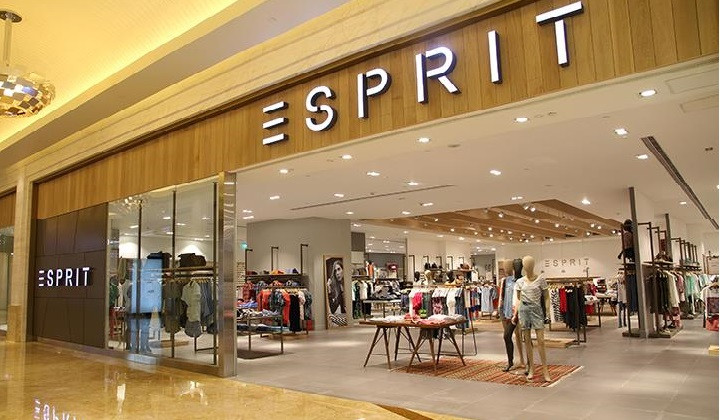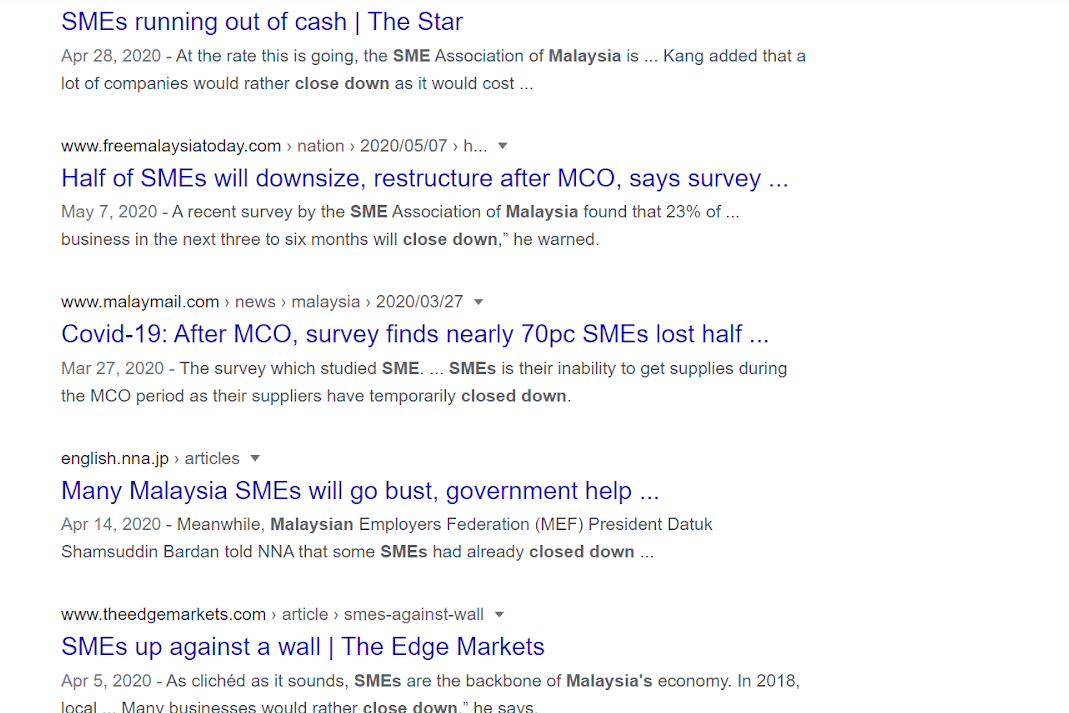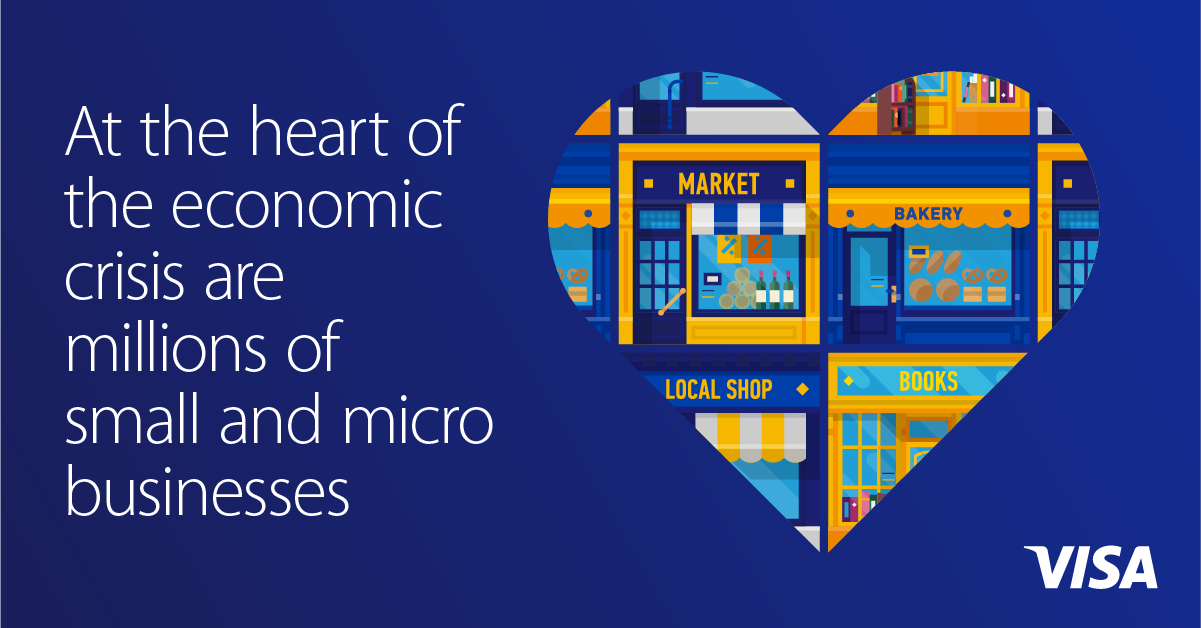Corporations VS SMEs: Who Got Hit The Hardest?
As unemployment rate skyrockets and the economy at the brink of recession, who bore the brunt of it all?

Have you ever really wondered: Who got hit hardest by COVID-19?
Large enterprises or SMEs?
Most major industries of the world are currently dealing with the devastating effects of COVID-19. From F&B to manufacturing, the pandemic has seen shifts in the way businesses and organizations operate in the wake of the deadly virus.
However, many have not been able to cope with this sudden surge, and were forced to put up the shutters.
With neither the large enterprises nor the SMEs being spared from the impacts of COVID-19, you may be wondering, then, which of them struggled more with financial woes?
Large Enterprises
Following the announcement of the MCO that has put the Malaysian economy in a standstill, the Malaysian government rolled out the PRIHATIN Rakyat Economic Stimulus Package (PRIHATIN Package) valued at RM250 billion and an additional economic stimulus package of RM10 billion.
The economic stimulus package was aimed at providing assistance mainly to the SMEs and micro-businesses in the country and the large corporations have not been able to benefit much from this.
Since the announcement of the lockdown, many corporations and industry giants in Malaysia like ESPRIT, Speedy Videos, Blu Inc Media, G City Club Hotel, Ramada Plaza Melaka have ceased operations due to having experienced a slump in sales for quite a period of time and the pandemic further crippling their businesses.
 ESPRIT stores in Malaysia are closing down by 30th June. Image via The Rakyat Post
ESPRIT stores in Malaysia are closing down by 30th June. Image via The Rakyat Post
 Speedy Video Distributors Sdn Bhd has announced that it will shutter all its retail outlets in the country. Image via Malay Mail
Speedy Video Distributors Sdn Bhd has announced that it will shutter all its retail outlets in the country. Image via Malay Mail
 Magazine publisher BluInc Media Sdn Bhd has ceased operations due to challenges arising from the digital disruption and Covid-19. Image via Hype MY
Magazine publisher BluInc Media Sdn Bhd has ceased operations due to challenges arising from the digital disruption and Covid-19. Image via Hype MY
Small and Medium-Sized Enterprises
As mentioned above, like many governments, the Malaysian government has also implemented economic measures to safeguard jobs and industries, especially the SMEs during the Movement Control Order (MCO).
Despite the assistance provided by the government, many SMEs in the service and tourism industry for the most part are still heavily affected and many are living from hand to mouth in this dire situation.

According to SMEinfo, a staggering 95% of business establishments in Malaysia are SMEs. There are an estimated 907,065 establishments of SMEs that cut across different sizes and industries in Malaysia and they contribute 38.3% to the country’s GDP in 2018.
With so much riding on the survival of SMEs, Visa has recently announced a commitment to support 10 million small businesses across Asia Pacific in an effort to get local communities back to business in the wake of the COVID-19 pandemic.
 Image via Visa
Image via Visa
Visa also formed the Visa Economic Empowerment Institute (VEEI) focused on economic and societal issues, including pandemic challenges SMEs face and closing racial and gender opportunity gaps.
To help small businesses, Visa is focusing initially on four strategic areas to promote digital commerce and economic growth, with plans to continue to create products and services as the needs of entrepreneurs change over time. These areas include:
1. Empowering digital-first businesses
 Image via Think Marketing
Image via Think Marketing
Visa has built localised online resource centres – now available in more than 20 countries and territories – providing tools, partner offers and information on how to start, run and grow a digital small business. Visa is teaming up with leading e-commerce platforms such as Shopify and Boutir to help local businesses get online. Visa will be expanding its global partnership with IFundWomen to Asia Pacific, providing grants and digital training to women-owned small businesses in India.
2. Encouraging digital payments:
 Image via PYMNTS.com
Image via PYMNTS.com
Visa is working to introduce low-cost digital payments acceptance, including solutions that do not require point-of-sale systems and can enable a merchant’s mobile phone to become a payment terminal. Visa is also supporting SMEs to make business-to-business (B2B) payments digitally. By digitalising procurement payments through the use of a Visa Business Card, SMEs can utilise reconciliation tools and benefit from higher efficiency and data insights, in addition to managing their working capital effectively.
3. Incentivising neighbourhood support:
 Image via NNA Business News
Image via NNA Business News
Visa has launched its new ‘Where You Shop Matters’ initiative in Australia and New Zealand that champions and enables entrepreneurs while encouraging consumers to support small businesses. Visa will be expanding the initiative to other Asia Pacific markets such as Hong Kong, Malaysia, Philippines, Singapore and Vietnam.
4. Developing positioning and policy:
 Image via The Networking Nerd
Image via The Networking Nerd
Visa also announced the formation of the Visa Economic Empowerment Institute. This new institute comprises Visa experts and partners who will help address underlying problems and provide insights for SMEs growth and closing racial and gender gaps. Key projects in the next six months will address topics including post-crisis recovery and resilience, urban mobility, closing equality opportunity gaps and insights into the gig economy.
Large enterprises and SMEs may have contrasting structures, niches and financial arrangements, but when all is said and done, they are all interconnected. If one falls, all others will fall in a domino-like effect.
Now with the interstate travel ban lifted and restrictions loosening up, let’s do our best to support our local businesses as we work hand in hand to boost our local economy.
As for businesses, the key to stay afloat is, still, to adapt to change. Learn how to evolve and meet new market demands here.


